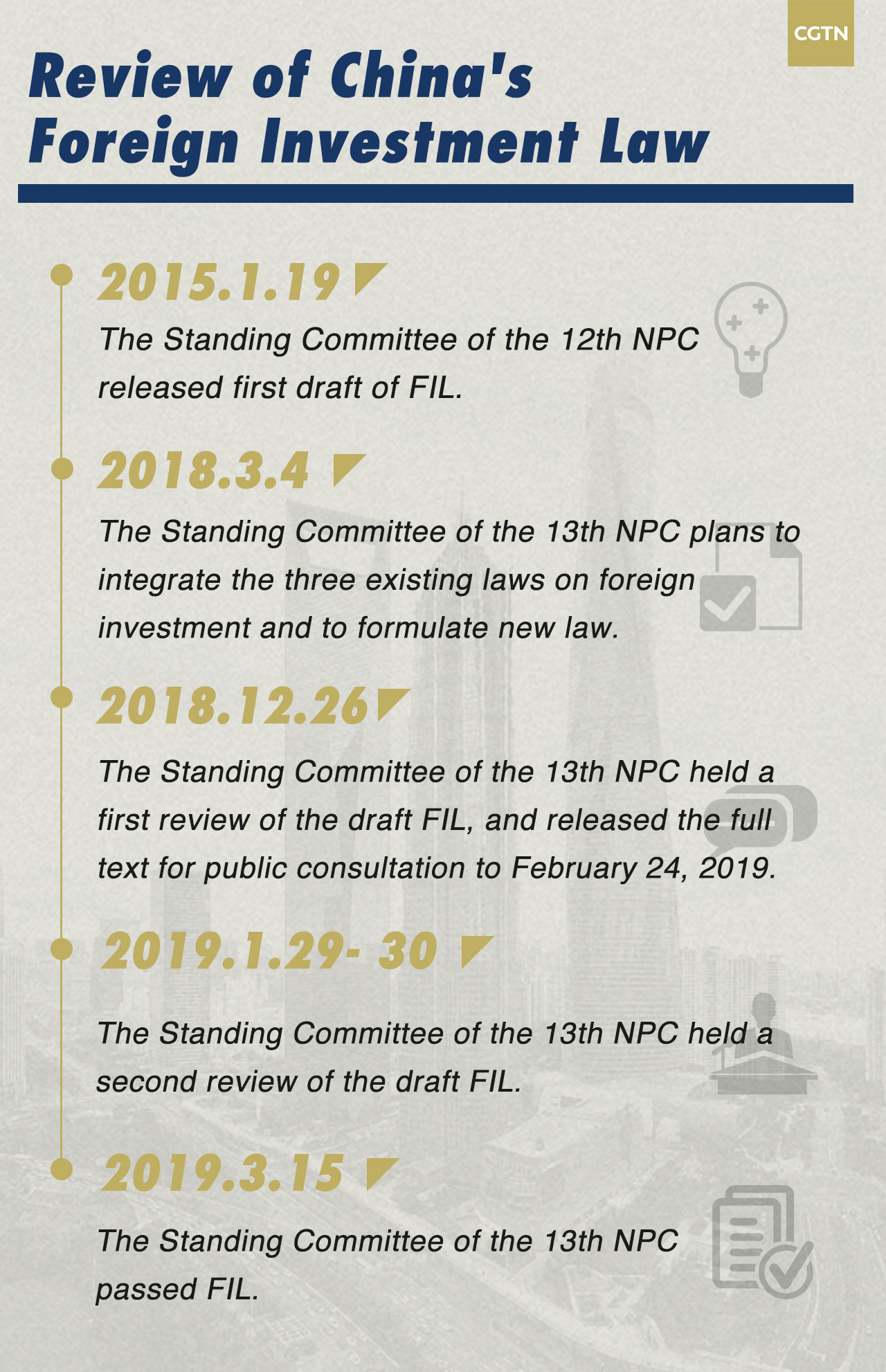
Economy
09:34, 15-Mar-2019
China passes the Foreign Investment Law
Updated
15:24, 18-Mar-2019
CGTN
02:34

China's Foreign Investment Law (FIL) was passed at the second session of the 13th National People's Congress (NPC), the country's top legislature, on Friday.
The FIL is a "fundamental law" supporting a high standard of opening-up under new circumstances, Li Zhanshu, Chairman of the Standing Committee of the NPC said.
The FIL will come into effect from January 1, 2020.
Formation of the Foreign Investment Law
Foreign investment into China has risen substantially over recent years, and existing laws on foreign investment are no longer able to meet the needs of the new era.
The FIL will replace three existing laws on foreign investment, namely the laws on Chinese-Foreign Equity Joint Ventures, Chinese-Foreign Contractual Joint Ventures and Wholly Foreign-Owned Enterprises.
01:35

The FIL intends to bring foreign businesses broader market access, protect their intellectual property, prohibit forced technology transfer, and guarantee a "level playing field" for both foreign and domestic companies.
The new law also mentions a negative list, which means that any business sector not on the list is permissible for entry -- thus making foreign investment a growth driver of China's continuing economic reforms and opening-up.
China started planning a new law in 2015, and the FIL went through two readings by the NPC Standing Committee before being passed.

The FIL will help China better integrate into the world economy as it improves the nation’s business environment. But what will come along is easier exposure to the uncertainties of the world’s economic landscape. Therefore, higher-quality development becomes crucial. But what really stands out is the innovation capability that will determine how far China can really proceed.
(CGTN's Tang Bo, Yang Yutong also contributed to this story)

SITEMAP
Copyright © 2018 CGTN. Beijing ICP prepared NO.16065310-3
Copyright © 2018 CGTN. Beijing ICP prepared NO.16065310-3